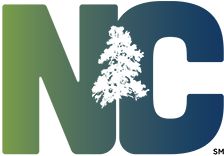
NC Department of Insurance
What To Do if You’ve Suffered Storm Damage – Frequently Asked Questions
If I have storm damage, what should I do?
- Contact your insurance agent/company as soon as possible to arrange a visit from an adjuster. Be patient; insurance companies will likely be handling a very large volume of requests.
- Before doing any repairs to your home, photograph and make a list of the damage.
- Protect your home from further damage by making temporary repairs only. Save any receipts for materials purchased for temporary repairs.
- Do not have permanent repairs made until your insurance company has inspected your property, and you have reached an agreement on the cost of repairs.
What should I do if my home is uninhabitable?
- If necessary, rent temporary shelter. If your home is uninhabitable, most homeowners policies pay additional living expenses while your property is being repaired. Before renting temporary shelter, check with your insurance company or agent to determine what expenses will be reimbursed. Save receipts.
Will my insurance pay for damage caused by flooding?
- Homeowners insurance policies do NOT cover flood or rising water damage. Flood insurance can be purchased through the National Flood Insurance Program.
- Some mobile home policies do provide flood coverage; check with your agent or company to see if you’re covered.
During a power outage, food in my freezer and refrigerator spoiled. Will my insurance cover the loss?
- Unless you have extra coverage with your homeowners policy, food lost in a power outage is probably not covered. Consider purchasing an endorsement to cover food losses in the future.
If my neighbor’s tree falls and damages my house, whose insurance should cover the damage?
- Generally, if a tree falls on your home, your own insurance policy would cover the damage.
If my vehicle is damaged by falling trees or debris, will my insurance cover it?
- Your insurance company may cover this kind of damage if you have comprehensive coverage. Check with your agent to determine whether your vehicle is covered.
Will my insurance pay for tree removal?
- Most companies will pay for a tree to be removed from a damaged structure, such as a home, garage or fence, but will not pay to remove a tree from your yard. Check with your agent/company to see what they will cover for tree removal.
How can I avoid being a victim of a scam?
- Always deal with licensed insurance companies, agents and adjusters. Ask to see identification or call the Department of Insurance to check the status of a license.
- Do not sign any blank application or claims forms.
- Don’t pay in cash for repairs; keep all your records and proof of payments.
The NC Department of Insurance encourages everyone who has suffered storm damage to visit www.NCHurriClaims.com or call the Department of Insurance at 855-408-1212 to speak to a Consumer Services Specialist. Specialists can answer insurance-related questions and provide assistance if you want to find contact information for an insurance company, check the license status for an insurance agent or company, or file a complaint.
The Disaster Mediation Program has been activated to help homeowners resolve disputed homeowners insurance claims for residential property damage resulting from Hurricane Matthew.
Consumers must request mediation within 60 days after an eligible claim is denied in whole or in part. Only homeowners in counties covered by the President’s disaster declaration are eligible.
Consumers’ claims must meet the following criteria to be eligible for the Mediation Program:
- The damaged residential property is located in a County covered by the disaster declaration.
- The insurance company has denied all or part of the claim.
- The dispute must be over the amount of the loss, or the insurance company’s findings on the cause of the loss.
- The total amount of the claim is more than the consumer’s deductible.
- The amount of the dispute (the difference in position between you and your insurer) is at least $1,500, unless both parties agree to mediate a smaller claim.
- Claims filed under commercial insurance policies, National Flood Insurance Program policies, motor vehicle insurance policies, or liability coverage contained in property insurance policies, are not eligible for the Mediation Program.
Consumers who wish to participate in mediation should first notify their insurance company, which will then send further information on the Mediation Program. Consumers may also call the American Arbitration Association (the Mediation Program administrator) at 866-293-4053. Additional information can be found on the Department of Insurance website at www.NCHurriClaims.com and on the American Arbitration Association website at www.adr.org.
The Disaster Mediation Program was created to provide homeowners with a free resource to resolve disaster-related, residential property damage claims disputes in a fair and timely manner. During the mediation process, an independent mediator with no connection to the insurance company will be in charge of the mediation conference. The mediator cannot make any decision about the dispute, but rather will facilitate discussion and negotiation between the insurance company and the policyholder.
Useful documents from the NC Department of Insurance
“A Consumer’s Guide to What to Do in the Event of Disaster”
“Flood Insurance Overview/Assistance”
Other insurance-related contacts you may need
National Flood Insurance Program 888-379-9531 (toll free) • TTY: 800-427-5593 • www.floodsmart.gov
NC Joint Underwriting Association/NC Insurance Underwriting Association (BEACH/FAIR Plan) 800-662-7048 (toll free in NC) • 919-821-1299 • www.ncjua-nciua.org
N.C. Attorney General Consumer Protection 877-5-NO-SCAM (toll free in NC) • 919-716-6000 www.ncdoj.gov/consumer.aspx
N.C. Department of Agriculture Emergency Programs 919-807-4300 • www.ncagr.gov/oep

